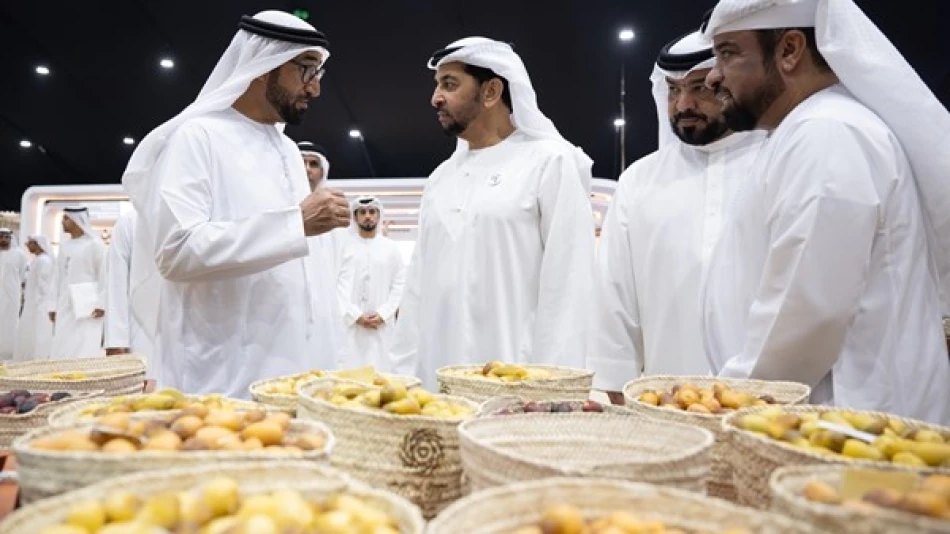
Emirati Official Celebrates Palm Heritage at Liwa Date Festival, a Prestigious National Event
UAE's Liwa Date Festival Showcases Strategic Blend of Heritage and Agricultural Innovation
The UAE's commitment to balancing cultural preservation with modern agricultural technology took center stage at the 2025 Liwa Date Festival, as senior leadership highlighted the nation's strategic approach to sustainable farming while honoring its deep-rooted palm cultivation heritage. The festival represents more than cultural celebration—it's a blueprint for how Gulf nations can modernize agriculture without losing their identity.
Royal Endorsement Signals Government Priority
Sheikh Hamdan bin Zayed Al Nahyan, the Ruler's Representative in Al Dhafra Region, emphasized the festival's role as a "leading national platform for celebrating palm heritage and promoting agricultural sustainability concepts" during his visit to the event. His public endorsement on social media platform X underscores the government's high-level commitment to the agricultural sector.
The Sheikh specifically noted the "distinguished efforts in supporting farmers and employing modern technologies to improve production quality," alongside programs aimed at preserving the palm tree as "an integral part of our history and national identity."
Strategic Agricultural Modernization
Technology Integration in Traditional Farming
The festival's emphasis on modern agricultural techniques reflects the UAE's broader strategy to enhance food security through technological innovation. This approach mirrors successful agricultural modernization programs in Israel and the Netherlands, where traditional crops have been enhanced through precision farming, automated irrigation, and data-driven cultivation methods.
Economic Diversification Through Agriculture
The focus on supporting farmers and improving production quality aligns with the UAE's Vision 2071 and its goal to reduce dependence on oil revenues. Date cultivation, while culturally significant, also represents a viable economic sector that can contribute to export revenues and domestic food security.
Regional Context and Competition
The UAE's agricultural modernization efforts come as Gulf nations increasingly compete for leadership in sustainable farming technologies. Saudi Arabia's Vision 2030 includes substantial agricultural investments, while Qatar has accelerated food security initiatives following the 2017 blockade. The UAE's approach of combining heritage preservation with technological advancement provides a unique positioning in this regional competition.
Investment and Market Implications
The government's continued investment in agricultural festivals and farmer support programs signals opportunities for agtech companies and sustainable farming solution providers. The emphasis on quality improvement suggests potential for premium date exports, particularly to European and Asian markets where organic and sustainably-produced foods command higher prices.
For investors, the agricultural sector's integration with cultural heritage creates a stable foundation for long-term growth, as government support is likely to remain consistent regardless of economic cycles. This stability contrasts with more volatile sectors and provides a hedge against oil price fluctuations.
Cultural Diplomacy and Soft Power
The festival also serves as a soft power tool, showcasing the UAE's ability to honor its Bedouin heritage while embracing modernity. This narrative resonates internationally and supports the nation's broader diplomatic and tourism objectives, creating additional economic value beyond direct agricultural output.
Most Viewed News

 Layla Al Mansoori
Layla Al Mansoori






